Introduction
When it comes to heavy machinery, the excavator machine stands out as one of the most versatile and indispensable tools in the construction and mining industries. Whether you’re a contractor looking to expand your fleet or a new business owner stepping into the world of heavy equipment, understanding the nuances of purchasing an excavator machine is crucial. This comprehensive guide will walk you through everything you need to know about buying an excavator machine, ensuring you make an informed decision that meets your needs and budget.
Understanding the Types of Excavator Machines

Before diving into the specifics of purchasing, it’s essential to understand the different types of excavator machines available on the market. Each type serves unique purposes and has distinct features that can significantly impact your operations.
Crawler Excavators
Crawler excavators are perhaps the most common type of excavator machine. They run on tracks, which provide stability and traction on rough and uneven terrain. These machines are ideal for heavy-duty tasks such as digging, trenching, and lifting.
Wheeled Excavators
Unlike crawler excavators, wheeled excavators run on wheels. They are faster and more maneuverable on hard surfaces, making them perfect for urban environments and road construction projects.
Mini Excavators
Mini excavators, also known as compact excavators, are smaller and lighter than standard excavators. They are suitable for small to medium-sized projects, particularly in confined spaces where larger machines cannot operate.
Long Reach Excavators
As the name suggests, long reach excavators have extended arms, allowing them to reach further distances. They are commonly used in demolition projects and dredging operations.
Key Considerations When Buying an Excavator Machine
Purchasing an excavator machine is a significant investment, and there are several factors you need to consider to ensure you make the right choice. Here are some critical aspects to keep in mind:
Purpose and Application
Identify the primary tasks you will use the excavator machine for. Whether it’s for digging, demolition, material handling, or landscaping, knowing the primary application will help you choose the right type and size of the machine.
Size and Specifications
Excavator machines come in various sizes, from compact mini excavators to massive crawler excavators. Consider the size of your projects, the space constraints at your job sites, and the machine’s specifications, such as operating weight, bucket capacity, and engine power.
Hydraulic System
The hydraulic system is the heart of an excavator machine. Check the machine’s hydraulic flow rate and pressure, as these will determine its digging force and lifting capacity.
Attachments and Versatility
Excavator machines can be equipped with various attachments, such as buckets, hammers, grapples, and augers. Consider the versatility of the machine and the availability of compatible attachments that can enhance its functionality.
Brand and Dealer Support
Choosing a reputable brand with a solid track record for reliability and performance is crucial. Additionally, consider the dealer’s support and service network, including availability of spare parts, maintenance services, and warranty coverage.
New vs. Used Excavator Machines
Deciding between a new and used excavator machine can be challenging. Both options have their pros and cons, which we will explore in this section.
Advantages of New Excavator Machines
- Latest Technology: New machines come with the latest technological advancements, which can improve efficiency and safety.
- Warranty: New excavators typically come with a manufacturer’s warranty, providing peace of mind and financial protection.
- Customization: When buying new, you can often customize the machine to meet your specific needs and preferences.
Advantages of Used Excavator Machines
- Cost Savings: Used machines are generally more affordable than new ones, making them a cost-effective option for many buyers.
- Depreciation: New machines depreciate quickly, while used machines have already undergone significant depreciation, potentially retaining their value better over time.
- Availability: Used machines can be more readily available, reducing the lead time for acquiring equipment.
Inspection and Evaluation of Used Excavator Machines
If you decide to purchase a used excavator machine, conducting a thorough inspection is essential to ensure you get a reliable machine. Here are some key areas to focus on:
Visual Inspection
- Exterior Condition: Check for signs of damage, rust, or excessive wear on the machine’s body and undercarriage.
- Hydraulic System: Inspect hydraulic hoses, cylinders, and fittings for leaks or damage.
- Tracks and Tires: Evaluate the condition of the tracks or tires, looking for signs of wear or misalignment.
Mechanical Inspection
- Engine: Start the engine and listen for unusual noises. Check for smoke emissions and ensure the engine runs smoothly.
- Hydraulic Performance: Test the hydraulic system by operating the boom, arm, and bucket. Ensure smooth and responsive movements.
- Controls and Cab: Check the condition of the operator’s cab, including seats, controls, and visibility. Ensure all controls are functioning correctly.
Maintenance Records
Review the machine’s maintenance records to verify regular servicing and repairs. A well-maintained machine is more likely to be reliable and perform well.
Financing Options for Buying an Excavator Machine
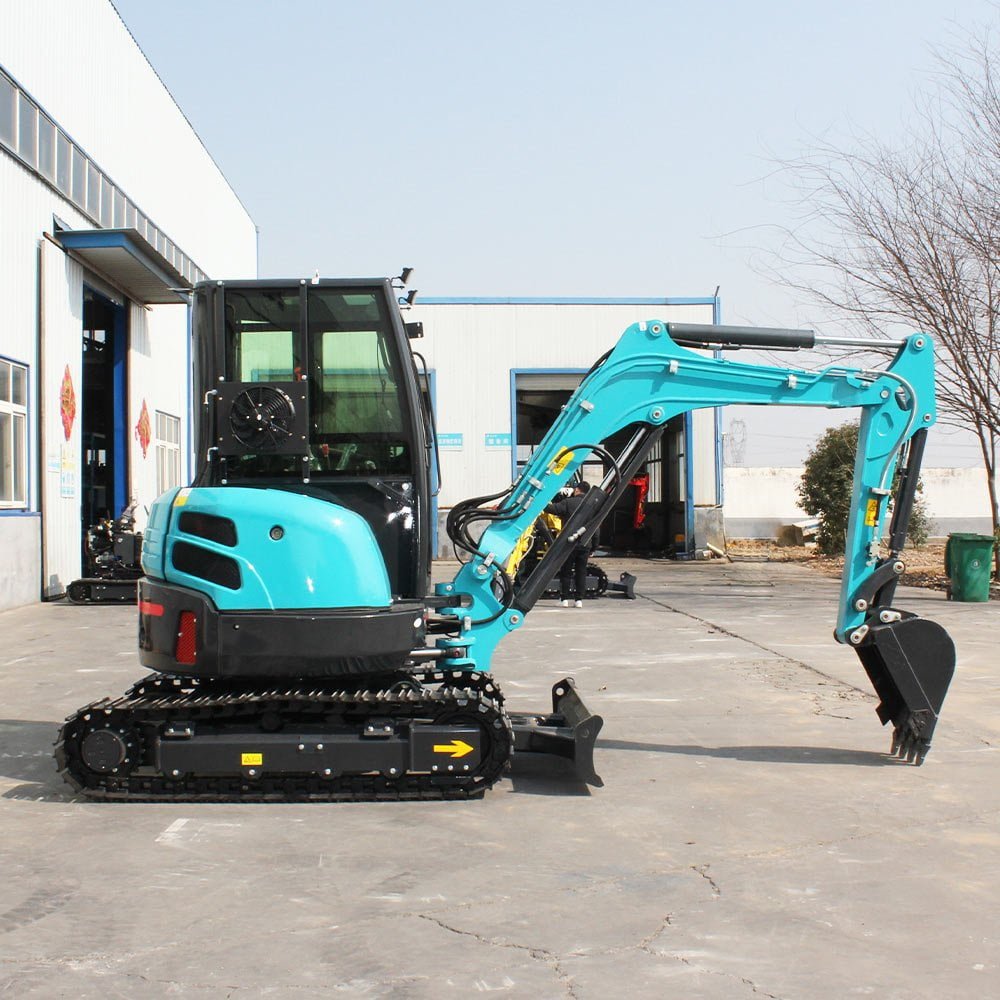
Purchasing an excavator machine can be a significant financial commitment. Here are some common financing options to consider:
Equipment Loans
Many financial institutions offer equipment loans specifically designed for purchasing heavy machinery. These loans typically have fixed interest rates and repayment terms, making budgeting easier.
Leasing
Leasing an excavator machine can be an attractive option if you prefer lower upfront costs and the flexibility to upgrade to newer models. Lease agreements can vary in length and terms, so it’s essential to understand the specifics before committing.
Manufacturer Financing
Some excavator manufacturers offer financing programs with competitive rates and terms. These programs may include special incentives, such as deferred payments or low-interest rates, to make the purchase more affordable.
Dealer Financing
Dealers often have partnerships with financial institutions to provide financing options to their customers. Dealer financing can be convenient, as it simplifies the purchasing process and may offer flexible terms.
Cost Analysis and Budget Planning
Before making a purchase, conducting a comprehensive cost analysis and budget planning is essential. This section will provide a detailed breakdown of the potential costs associated with buying an excavator machine.
Table: Cost Breakdown of Excavator Machine Purchase
| Cost Component | Description |
|---|---|
| Purchase Price | Cost of the excavator machine |
| Attachments | Additional attachments (buckets, hammers, etc.) |
| Transportation | Delivery and transportation fees |
| Insurance | Insurance coverage for the machine |
| Maintenance and Repairs | Regular maintenance and unexpected repairs |
| Operator Training | Training costs for machine operators |
| Financing Charges | Interest and fees on financed amount |
By understanding these cost components and planning your budget accordingly, you can ensure a smooth purchasing process and avoid financial surprises.
Conclusion
Buying an excavator machine is a significant investment that requires careful consideration and planning. By understanding the different types of excavator machines, evaluating your needs, and considering both new and used options, you can make an informed decision that aligns with your business goals. Remember to conduct thorough inspections, explore financing options, and plan your budget to ensure a successful purchase. With the right excavator machine, you can enhance your operational efficiency and tackle projects with confidence.
FAQ
What is the average lifespan of an excavator machine?
The lifespan of an excavator machine can vary based on usage, maintenance, and operating conditions. On average, well-maintained excavators can last between 7,000 to 10,000 hours.
How do I determine the right size of an excavator machine for my project?
Consider the scope and scale of your projects, the space available at job sites, and the type of tasks the machine will perform. Consulting with an equipment specialist can also help you determine the appropriate size.
What are the maintenance requirements for an excavator machine?
Regular maintenance includes checking and changing fluids, inspecting and replacing filters, lubricating moving parts, and conducting thorough inspections of the hydraulic system and engine.
Can I use an excavator machine for multiple types of projects?
Yes, excavator machines are versatile and can be equipped with various attachments to perform different tasks, such as digging, demolition, material handling, and landscaping.
What are the key safety features to look for in an excavator machine?
Key safety features include ROPS (Roll Over Protective Structure) and FOPS (Falling Object Protective Structure) cabs, backup cameras, overload warning systems, and emergency stop controls.

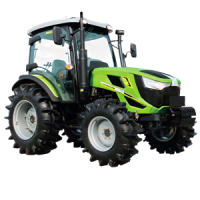
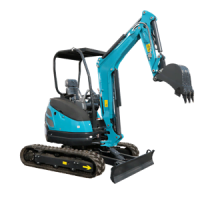
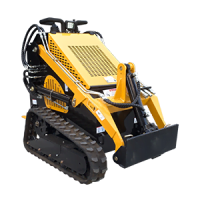
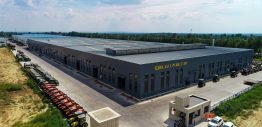
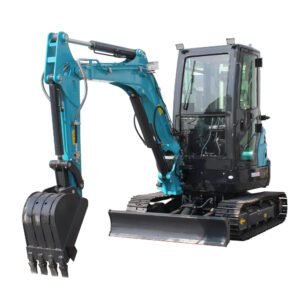
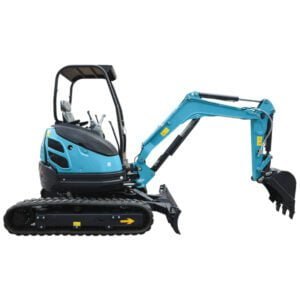
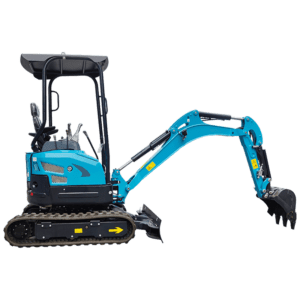

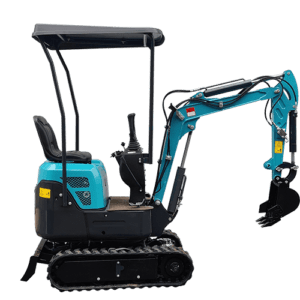

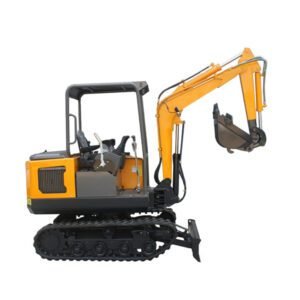

-1.png)